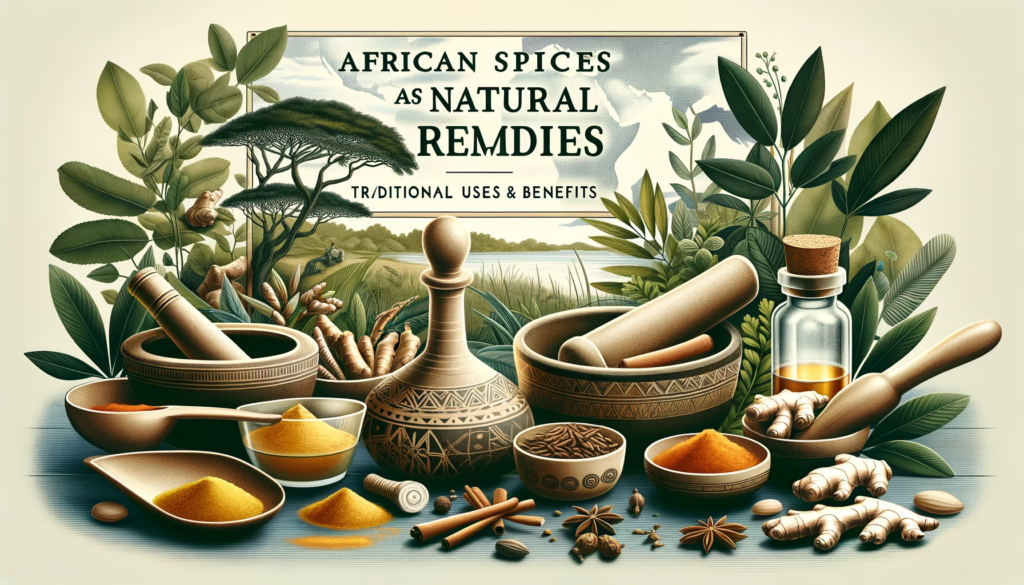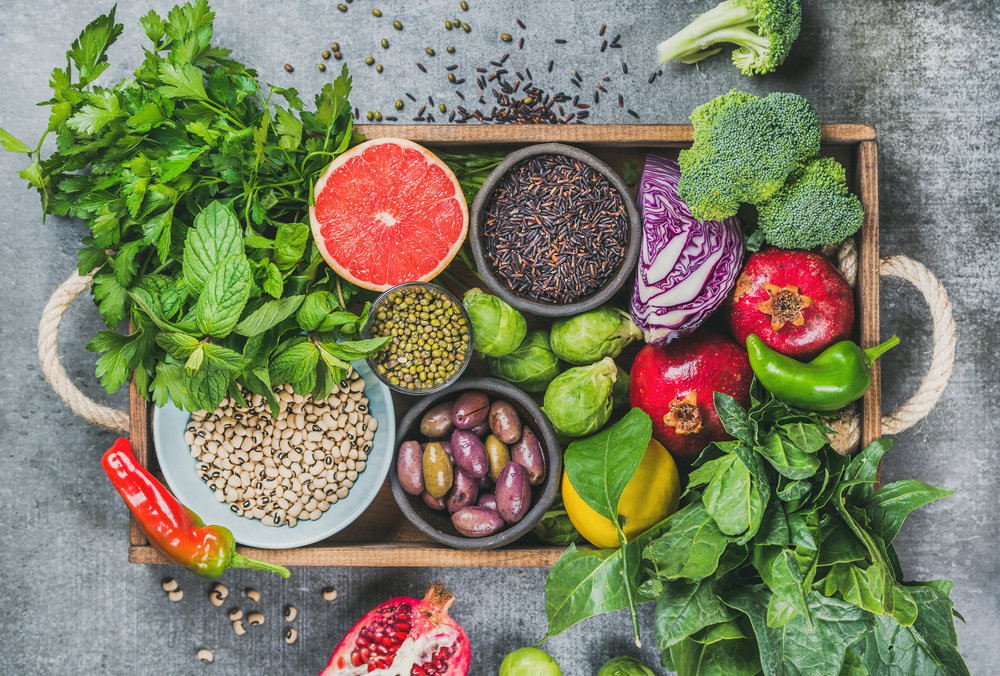Embracing African Spices in Vegan Cuisine
Exploring the vibrant traditions of African cuisine can transform the vegan kitchen into a hub of flavor and excitement. Rich in history and versatility, African spices offer depth and complexity to dishes, making them a perfect match for the natural tastes of plant-based ingredients. From Morocco’s fragrant markets to Ethiopia’s rich soils, every region offers its unique blend of spices that can elevate vegan cooking. This guide delves into the world of African spices, blending cultural heritage with modern culinary techniques to enhance vegan dishes, ensuring that your meals are nourishing and bursting with exceptional flavor.
The Richness of African Spice Palettes in Vegan Cooking
Key African Spices for Vegan Dishes
Berbere for Heat and Depth
Berbere is the fiery heart of Ethiopian cooking, a robust spice blend often composed of chili peppers, garlic, fenugreek, and warm spices such as cinnamon, coriander, and allspice. Its versatility makes it an essential ingredient for crafting authentic Ethiopian wot (stew) or to add a smoky intensity to lentils, grains, and roasted vegetables. Berbere’s complex heat instantaneously brings soulfulness to vegan dishes, creating a profound taste experience that resonates well beyond the initial spice.
Ras el Hanout for Aromatic Complexity
Ras el Hanout, the crown jewel of Moroccan spice blends, carries an aroma and flavor profile unparalleled in its intricacy. This blend is not strictly defined and can contain over a dozen spices, including turmeric, nutmeg, cardamom, mace, and more. Each ingredient is carefully balanced to bring out subtle floral notes, a touch of sweetness, and a hint of earthiness. This peerless mixture can be sprinkled over root vegetables before roasting, stirred into couscous, or used to season soups and stews, infusing each bite of your vegan creations with the essence of North African kitchens.
Dukkah for Texture and Nuttiness
Egypt’s answer to the quest for crunch and flavor in vegan dishes is Dukkah – an aromatic blend of toasted nuts, seeds, and spices. Almonds, hazelnuts, sesame seeds, cumin, and coriander combine to form a coarse mixture that adds delightful texture and richness to the simplest dishes. Whether sprinkled over avocado toast, blended into a plant-based spread, or used as a crust for baked tofu, Dukkah brings a playful contrast in texture that enriches the vegan culinary repertoire with its satisfying nuttiness.
Harissa for Fiery Flavors
A Tunisian staple, Harissa is a fiery chili paste that marries heat with depth. Comprising smoked red peppers, caraway, cumin, coriander, and garlic, this vibrant concoction isn’t just about spiciness; it’s about the layered flavors that unfold with each taste. Harissa can be swirled into hummus, drizzled over roasted veggies, or stirred into grain bowls to introduce a spirited kick and a smoldering color to vegan dishes. Its richness enlivens the palate and can be moderated to cater to a range of spice preferences.
Chermoula for Herbaceous Freshness
Another gem from the Maghreb, Chermoula is a marinade and relish that is zesty, tangy, and effervescent with herbs. Predominantly made with fresh cilantro, lemon, garlic, and cumin, it is the perfect counterpart to heartier and more robust spices. Chermoula can be used as a marinade for grilled tofu or tempeh, spooned over steamed grains, or stirred into a chickpea salad to bring a breath of freshness that’s akin to a coastal breeze in each bite. It not only elevates the dish’s flavors but also adds a healthy dose of antioxidants and vitamins.

Incorporating African Spices into Vegan Recipes
Creative Ways to Use Spices in Plant-Based Meals
Inventiveness and curiosity are key when infusing vegan cuisine with African spices. These rich and varied seasonings can be incorporated into traditional dishes and modern interpretations alike. Think about a berbere-spiced vegan burger, or a squash soup enhanced with Ras el Hanout. The inclusion of Dukkah as a topping for creamy soups adds surprising texture, while Harissa can form the basis of a bold dressing for a warm grain salad. Chermoula, meanwhile, can bring life to a stuffed bell pepper dish, or provide a fragrant bathing sauce for roasted cauliflower. The possibilities are boundless, limited only by the cook’s imagination and willingness to experiment.
Sample Vegan Recipes Enhanced with African Spices
Imagine unraveling the tapestry of flavors encompassed in African spices through a selection of curated vegan recipes. Picture a lentil stew enriched with the sultry undertones of Berbere, a vegetable tagine kissed by the aromatic breeze of Ras el Hanout, and a flatbread crowned with a crunchy blanket of Dukkah. Visualize the color and excitement of a grain bowl drizzled with Harissa dressing, or the freshness of a bean salad punctuated by the verdant notes of Chermoula. These recipes are not only a testament to the culinary diversity of the vegan diet but also an exploration into the bountiful essence of African spice blends.
Tips for Balancing Flavors in Vegan Cooking
Pairing Spices with Plant-Based Ingredients
Mastering the art of flavor balance is essential when crafting delectable vegan dishes with African spices. These powerful blends should complement and enhance the natural taste profiles of plant-based ingredients without overshadowing them. Learning which spices pair well with certain foods is crucial. Earthy legumes sing when married with the deep tones of Berbere, while the subtly sweet notes of Ras el Hanout bring out the best in roasted root vegetables. A consideration of texture is also important, making Dukkah an ideal choice for smooth, creamy dishes where a contrast is welcomed. Listen to your ingredients and let them guide the harmony of spices in your cooking.
Adjusting Spice Intensities for Diverse Palates
Appreciating spice is deeply personal and can vary widely from one individual to another. When cooking vegan dishes with African spices, it’s vital to understand the heat and strength of the spices you’re using. Start with a conservative amount and gradually increase to suit your preference or that of your guests. For the bold profiles of Harissa and Berbere, a lesser quantity may be perfect for those unaccustomed to heat, while others might savor a stronger kick. Always taste as you cook and remember that adding more spice is easier than correcting an overly spiced dish.

The Health Benefits of African Spices in Vegan Diets
Nutritional Advantages of Key Spices
African spices are not only culinarily valuable but also packed with health benefits that complement vegan diets. Many of these spices, such as turmeric found in Ras el Hanout and cumin in Chermoula, have anti-inflammatory and antioxidant properties. They can aid digestion, boost metabolism, and even support immune function. Incorporating a variety of these spices into meals ensures not only an explosion of flavor but also an infusion of essential nutrients. They offer a synergy with plant-based eating that fortifies the body and elevates the spirit.
The Role of Spices in Balanced Vegan Nutrition
Embracing a vast array of spices in vegan cooking contributes to a well-balanced diet. The holistic properties of these spices complement the nutritional profile of vegetables, grains, legumes, and seeds. They can enhance iron absorption, provide key vitamins and minerals, and add significant levels of fiber. Additionally, incorporating a diverse spectrum of spices helps keep vegan diets exciting and emotionally satisfying, which is crucial for long-term adherence and enjoyment. Thus, the use of African spices aligns well with the pursuit of a holistic and wholesome vegan lifestyle.
Building Your Vegan Pantry with African Spices
Essential Spices to Stock for Vegan African Cooking
Creating a well-stocked vegan pantry is the first step to effortlessly infusing meals with the vibrancy of African cuisine. Essential spices such as Berbere, Ras el Hanout, Dukkah, Harissa, and Chermoula should have a reserved spot on your shelves. These key spices can transform simple ingredients into spectacular meals that resonate with authenticity and flavor. While sourcing these spices, look for quality and authenticity, as freshly ground and properly blended spices have a more potent and delightful effect in cooking.
Storing and Preserving Spices for Freshness
To ensure that your African spices retain their flavor and therapeutic benefits, proper storage is key. Spices should be kept in airtight containers, away from heat, light, and moisture, which can diminish their quality. Whole spices usually keep their potency longer than ground ones, so consider investing in a small grinder to enjoy the freshest flavors. Periodically check your spices for freshness—most ground spices should be replaced every six months to a year. This attentiveness will guarantee that your cooking always benefits from the maximum taste and nutritional value of the spices.
FAQs on African Spices as Natural Remedies
Can African spices really help improve my health?
Many African spices possess scientifically supported health benefits, mainly due to their anti-inflammatory, antioxidant, and antimicrobial properties. Integrating these spices into your diet may contribute to improved health, but they should enhance, rather than replace, a balanced diet and proper medical care where necessary.
How can I ensure that I’m sourcing spices ethically and sustainably?
To source spices ethically and sustainably, check for certifications like Fair Trade or Organic. It’s also recommended to learn about the brand’s production and sourcing practices, and choose companies that actively support local growers and contribute positively to the communities where the spices are cultivated.
What should I be aware of when using African spices as remedies?
When using spices as remedies, be mindful of potential interactions with medications or specific health issues. Some spices can have strong effects and might not be suitable for everyone. Consult a healthcare provider to avoid adverse reactions, especially if you’re pregnant, nursing, or have an existing medical condition.
Can African spices be used for all types of ailments?
African spices are traditionally used to alleviate various ailments, but they are not a panacea. Each spice has unique properties that may benefit certain conditions. Research and consultation with a health professional can help you understand which spices might be most beneficial for specific health concerns.
How should I start incorporating African spices into my health routine?
Start by introducing them in small amounts to your diet, such as adding spices to your meals or drinking herbal teas. Pay attention to your body’s responses, and gradually incorporate more as you become comfortable. Remember, moderation is key, even with natural remedies.
